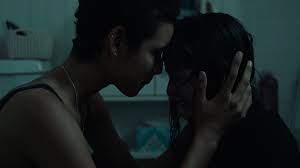Falling fairly and squarely into the category of “follow your dream” films, Wild Rose is about a young Scottish country music singer who is trying to make her career happen despite the tough beginnings she has in Glasgow, the fact that she has just spent a stint in prison for selling drugs and that she has two young children being brought up by her disapproving mother.
After Rose-Lynn gets out of jail with an ankle tag, she starts cleaning homes and it is the owner of one of these homes, a well-off Londoner who pulls strings and gets her an interview at the BBC with their country music specialist. You would think this would mean lift-off for a stunning new career.
However, Rose-Lynn is her own worst enemy and is also in the middle of a major dilemma: pushing her career would mean abandoning her children again.
Eventually, she does go to Nashville and does come back and while the ending is optimistic, it is probably not what we expected and avoiding some of the clichés of this genre is to the films credit.
Jessie Buckley gets her breakout role in this 2019 film and shows that not only is she a competent actor, but she is also a very good country singer – in fact she toured with the songs from this movie. I found her voice got a bit monotonous at the end but that sort of goes with the territory. Some songs, notably one she sings in the Grand Ole Opry in Nashville is excellent.
Julie Walters plays Marian, her hard done by and realistic mother with the efficiency we know Walters is capable of and Sophie Okenedo is a welcome face as the sympathetic employer.
At the end of the day I felt it failed to lift above a competent wet Sunday afternoon movie.
There was not enough backstory and grit to strengthen the rather clichéd dream, however valid it may have been and bits of poetic licence skimmed over rather implausible situations.
3 stars plus
















































































